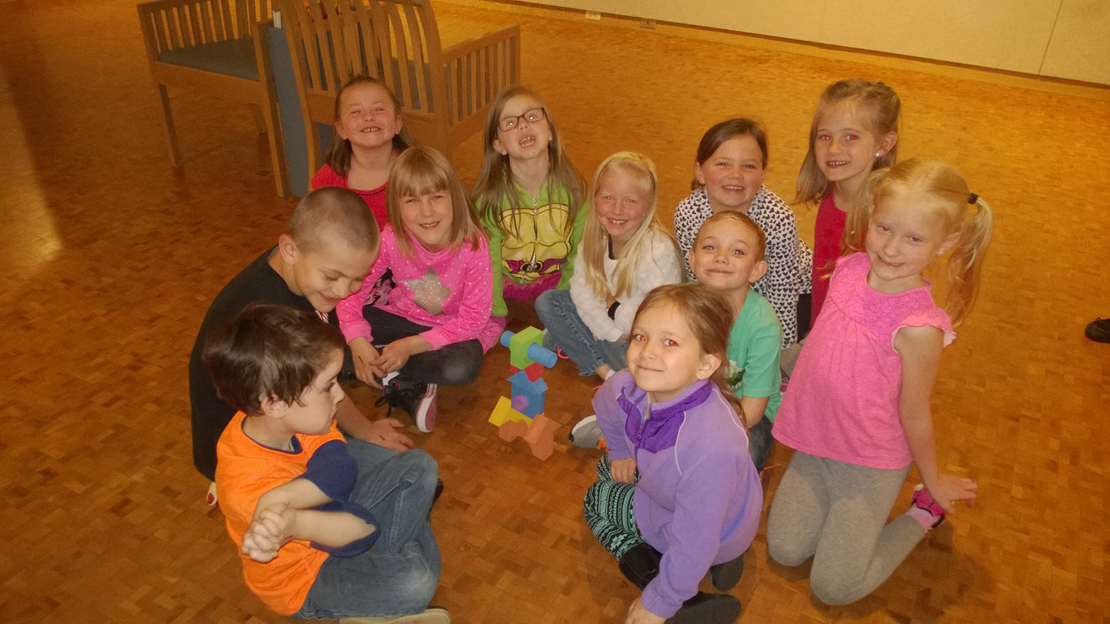Four vie for three seats on School District of Rhinelander Board of Education

STAR JOURNAL REPORT
We asked the candidates why they want to serve on the Rhinelander Schoool Board and what they consider important issues in the district and beyond. Candidate answers are listed in the order in which their names will appear on the ballot.
Why are you interested in being on the school board?

Duane Frey
Duane Frey: Our schools in northern Wisconsin continue to experience the unpredictability of annual state funding. For our district to maintain quality education and provide students with a challenging curriculum that keeps pace with a changing world, school boards need to be proactive and work towards financial stability that is fair and provide the resources our district needs to focus on education children.

Mike Roberts
Mike Roberts: I am interested in continuing on the school board because as a parent, involved community member and professional living, working and raising my children in Rhinelander, I feel compelled to run for the school board for a variety of reasons. As a parent, I feel strongly about all aspects of education. As a community member and professional in Rhinelander, I believe that schools are the most important part of making a community successful. I believe that my education, training and skills uniquely position me to assist the School District of Rhinelander work through the continued difficult times. My experiences on the school board have given me the knowledge to continue the work that has been completed in the recent past. I want the opportunity to continue to give back to a community that has been so good to me and my family.

Ben Roskoskey
Benjamin Roskoskey: As a new parent, I am looking to the future of the school district and am therefore committed to its continued success. I was given a strong, public education and I want to be able to ensure that the following generations do as well. I want to have a positive impact on the lives of our students and help develop them into Wisconsin’s future workforce, leaders, and visionaries.
Merlin Van Buren: I have now served six years on the school board. When I first ran for school board  I ran due to my interest in education and my wanting to serve my community. My reason for running for reelection is the same as it was for running the first time. Education is the key to the future of our community. The most important thing we can do is ensure that our children receive the education that they need to succeed.
I ran due to my interest in education and my wanting to serve my community. My reason for running for reelection is the same as it was for running the first time. Education is the key to the future of our community. The most important thing we can do is ensure that our children receive the education that they need to succeed.
What are your qualifications?
Frey: I have a B.S. degree in education and a M.S. degree in educational administration. My teaching career includes teaching in Melbourne, Australia; teacher and administrator at Rhinelander Catholic Central (Nativity School) and elementary principal in the Northland Pines School District.
Roberts: I was born and raised in a small community much like Rhinelander. My parents, both retired teachers and varsity-level coaches, exposed me to all aspects of the educational experience. As a multi-sport scholar athlete I spent much of my time at school and quickly realized the teachers, administrators and support staff made themselves available to everyone all hours of the day. Thanks in part to them, I and many others stayed on the right track and continued our education. Upon graduating I attended Michigan Technological University receiving a bachelor’s degree in Civil Engineering. Immediately after graduation I began working for MSA Professional Services. In 1996, my wife Angie, a Rhinelander native, and I were transferred back to Rhinelander where we have firmly put down roots, now raising two young children: Luke (19) and Olivia (17). I spent 12 years with MSA working on and managing a multitude of municipal projects. In 2006 I began working for the State of Wisconsin’s Department of Health where I am responsible for federal regulatory oversight and plan review for licensed hospitals and long-term care facilities in the northern region of Wisconsin.
Roskoskey: I understand the educational process and current school climate not only as a recent graduate but also as the son of a teacher. I have prior experience as treasurer of my college fraternity and am currently involved in multiple committees within my church including: Staff Parish Relations Committee, tasked with employee relations, and church council. I have a lot of interaction with both children and teenagers as my wife and I are both involved with the church’s youth group as well as with the Big Brothers-Big Sisters program. It is important to have multiple generations and ideas represented on the school board. I am very curious by nature and enjoy asking questions to understand how everything, schools included, work. My engineering background causes me to always dig deeper to find answers.
Van Buren: Most importantly my last six years serving on the Rhinelander School Board, and most recently serving as chair of the Employee Relations Committee for the Rhinelander School Board.
I received my B.S. degree from UW-Madison, and did graduate work in education and biology at Northern Illinois University. I worked as a high school chemistry teacher at Marian Central Catholic H.S. in Woodstock, Ill., prior to moving back to Wisconsin.
What do you think are the most important issues facing the School District of Rhinelander in the next three years?
Frey: As with a majority of our Northwoods school districts, our biggest challenge will be how to optimize budget dollars while state funding continues to drop. It is important we continue to retain and hire quality teachers and administrators and provide all students the educational opportunities and skills needed to be successful in life. Our community has supported the school district with referendum dollars. Our job as a school board is to continue to lobby for fair funding and be good stewards of tax dollars.
Roberts: The most important issue the district continues to face year after year is financial problems. The way that Wisconsin schools are funded is fundamentally flawed and for districts such as the School District of Rhinelander, it does not keep up with the rising costs of inflation. So, year after year, without change and despite fiscally responsible policies, the gap between costs and revenue increases. District policies need to continue to focus on fiscal responsibility and efforts to increase revenue, all while maintaining rigorous school programming and maintaining existing facilities. The School District of Rhinelander has been very good at being fiscally responsible while keeping the needs of the students as priority number one. Every decision I make as a board member comes down to return on investment. When I make school board decisions I constantly weigh “How will this decision benefit students and is it worth the cost in dollars or manpower?” This is extremely important when thinking of kids first and keeping within the limited budget.
Roskoskey: Funding, plain and simple. We need to look at ways, besides raising property taxes, to increase our budget. We should take a good look at what Merrill has done with their virtual academy and what Eagle River is doing with their international student program. Merrill’s virtual academy is so strong that they are able to get homeschooled students to pick them as a school of choice, increasing their revenue limit and bringing in more state aid. Eagle River’s international program could raise up to $600,000 per year.
Flexibility in schools. Not everyone learns the same way or at the same speed. Students should be able to work at their own pace, utilizing a variety of teaching methods. We also need to allow our teachers to work using methods that highlight their strengths as educators.
Van Buren: Funding is always number one, and the one that we have the least control over as a board. Thankfully, our community has supported our district, by approving the funding referendums. Another looming issue that we are starting to see is a teacher shortage, especially here in the Northwoods, in the math and science areas. It is becoming more and more difficult to find quality teachers due to lower numbers of college graduates entering the teaching profession. That is why teacher retention is so important. We cannot afford to lose our good teachers to other districts.
As a district we are focusing on two big issues to help our younger students: reading and math. First, reading was taken on and we are seeing great improvements in our reading scores/abilities. Now we are taking on math; early results are looking very good. By identifying students that need additional help and supplying that help early, we will set-up our students up for long term success.
What do you think are the school district’s strengths?
Frey: I believe we have a very competent administrative staff that has put an emphasis on teacher and student accountability. Our teachers continue to keep pace with changes in instructional methods. Administration and staff have implemented numerous curriculum changes that are showing positive signs in student growth at all levels. One of our most important steps in financial savings as well as being proactive with the health of our employees was the implementation of the Aspirus School District of Rhinelander Clinic. We have seen a substantial decrease in claims and our health insurance renewal is well below the state average.
Roberts: I believe that the biggest strength of the district is the people of Rhinelander, both staff and students in the schools and the community. The community has gotten behind the schools year after year to continue the many successes. Small Northern Wisconsin schools will not survey without the local communities standing behind them.
Roskoskey: Innovation. The district has done a wonderful job with figuring out how to keep costs low, especially through the choices they have made with regards to employee healthcare. Due to their choice of provider, employee education, biometric screening, and integration of the clinic with part-time nurse within the high school; they have been able to reduce the referendum amount needed this year by $500,000, at a savings to the taxpayers!
We also have wonderful teachers, administrators, and support staff, who are able to utilize the latest technologies and teach students in some very creative ways, including with the Hodag Tracks virtual program, which helps all students to learn more efficiently.
Van Buren: Our staff and the support of our community. Education is really a service industry. So our biggest expense and our most important asset is our staff. We are blessed with an excellent Superintendent who has surrounded herself with great support staff. The School Board and our Administration has worked hard to build an excellent working relationship with our teachers and teaching assistants. Our teachers are the key; they continue to work tirelessly day in and day out to provide our children with a quality education.
Without the support of our community to overcome the lack of state funding for education, our school district would look much different than it does and would be unable to provide the quality of education that is necessary for the jobs of tomorrow.
What are its weaknesses?
Frey: We need to continue to keep pace with neighboring districts concerning staff salaries or we will be unable to keep and attract excellent teachers, administrators and support staff. Although our students are scoring much higher on state required tests, there is always room for improvement.
Roberts: The biggest weakness of the school district is the funding issues, with the formula the way it is the most the district ever gets is 3 years of stability at a time. Having the success or failure of a school district, of over 2000 students, dependent on a referendum vote every three years, makes stability very difficult. The process makes it very difficult to recruit and retain the best and brightest employees. It also has a great effect on were people choose to live when they move to the area. When there are multiple districts within 30 minutes of each other, people have options.
Roskoskey: Long-term planning. We are doing nothing about planning beyond the current five-year strategic plan. We need to be looking 20+ years ahead to make sure that our current choices don’t lead to small short-term gain, followed by a large long-term loss.
Van Buren: One of the biggest challenges of our district is also the biggest weakness or our community; the high poverty rate. Over 50 percent of our students live in low-income households. This is indicative of the lack of good paying jobs in our community. Low income affects the home life and ability of parents/guardians to be engaged in the education of their children. One of the biggest factors in student achievement is parental involvement. Parents don’t get involved because they don’t want to; they may lack the time, due to working two or three jobs to make a living. They may lack the skills to help their children, or they may lack the funds to buy a computer or pay for internet access. Often with low income you will also find the lack of a stable home.
We are one failed referendum away from a gutted school district. As board members this thought is always looming in the background. The cuts that would have to be made, if a referendum fails, would drastically affect our ability to offer a quality education to our children.
What do you see as the biggest issues facing public education?
Frey: Even though our student enrollment has stabilized and we do not expect any significant drop in the next five years, school funding will be a major issue. The effects of declining state aid has forced us and many of our Wisconsin schools to rely on referendums to just keep pace with expenses. Our community values education and has been very supportive. Since 2001 our state ad per student has dropped from $13,000 to approximately $6,000 per student. The School District of Rhinelander is considered a High Property District despite the fact we are close to a 60 percent free and reduced population for family hot lunch subsidy. With the present school aid funding formula we will continue to feel the pinch of decreasing state aid. As a school board I believe our priority will be to work towards an equitable state aid funding formula so we may continue to provide individual learning opportunities for our children.
Roberts: As with the greatest weakness of the school district, the biggest issue facing public education is funding. For all the reasons above, plus the general way that schools are funded. To best teach all students, schools must be educationally diverse and populated with brilliant and vibrant staff and teachers. Without proper funding the best and brightest will not choose to build a career in education and as a result it will start a spiral, making schools less and less affective. Thus making communities less vibrant which affects everyone living in those communities.
Roskoskey: Oversight. People not at the local level always want to have too much control over what is going on at the local level. Because the Rhinelander School District is 80-percent self-funded, we should have an 80-percent say in what happens within our district and an 80-percent say in how our funds are spent.
Van Buren: Two issues: vouchers and state funding.
Vouchers: Don’t let the politicians fool you. Voucher schools do have an adverse affect on the funding of the Rhinelander School District. Voucher schools are paid first out of the funds available for education. What remains is then divided amongst the public schools using the funding formula. So voucher schools, even in Milwaukee, affect our Rhinelander School District. We cannot afford to fund two separate school systems. It is not sustainable. Public schools are here to educate every student. Voucher schools are able to pick and choose the students they will educate. Public schools are accountable to you the tax payer, voucher schools are not.
State Funding: Our state representatives have chosen to shift the funding of schools from the state to the local level, requiring the use of referendums to maintain proper funding. They have done this purely for political reasons. They have chosen to not change the school funding formula, seeing it as too tough of an issue for them to agree on. Instead they try to apply band aids, and temporary fixes. Most of the tax breaks from cutting school funding went to the wealthiest individuals; the poorer people in our state actually saw a tax increase. There is wide disparity in tax rates for different districts and disparity on what each district is allowed to spend on a per student basis. This is not fair to our taxpayers and to our students.
Leave a reply
You must be logged in to post a comment.





